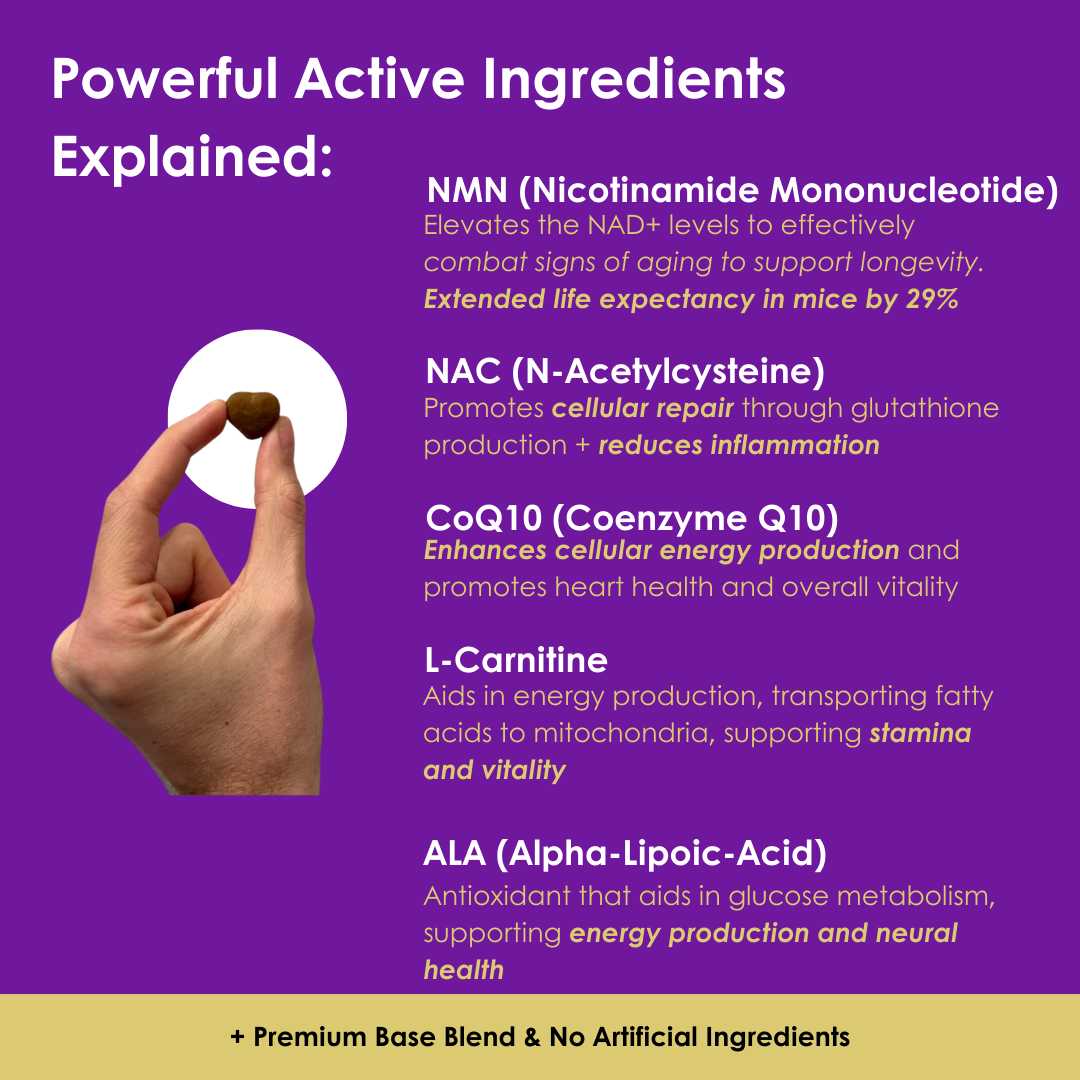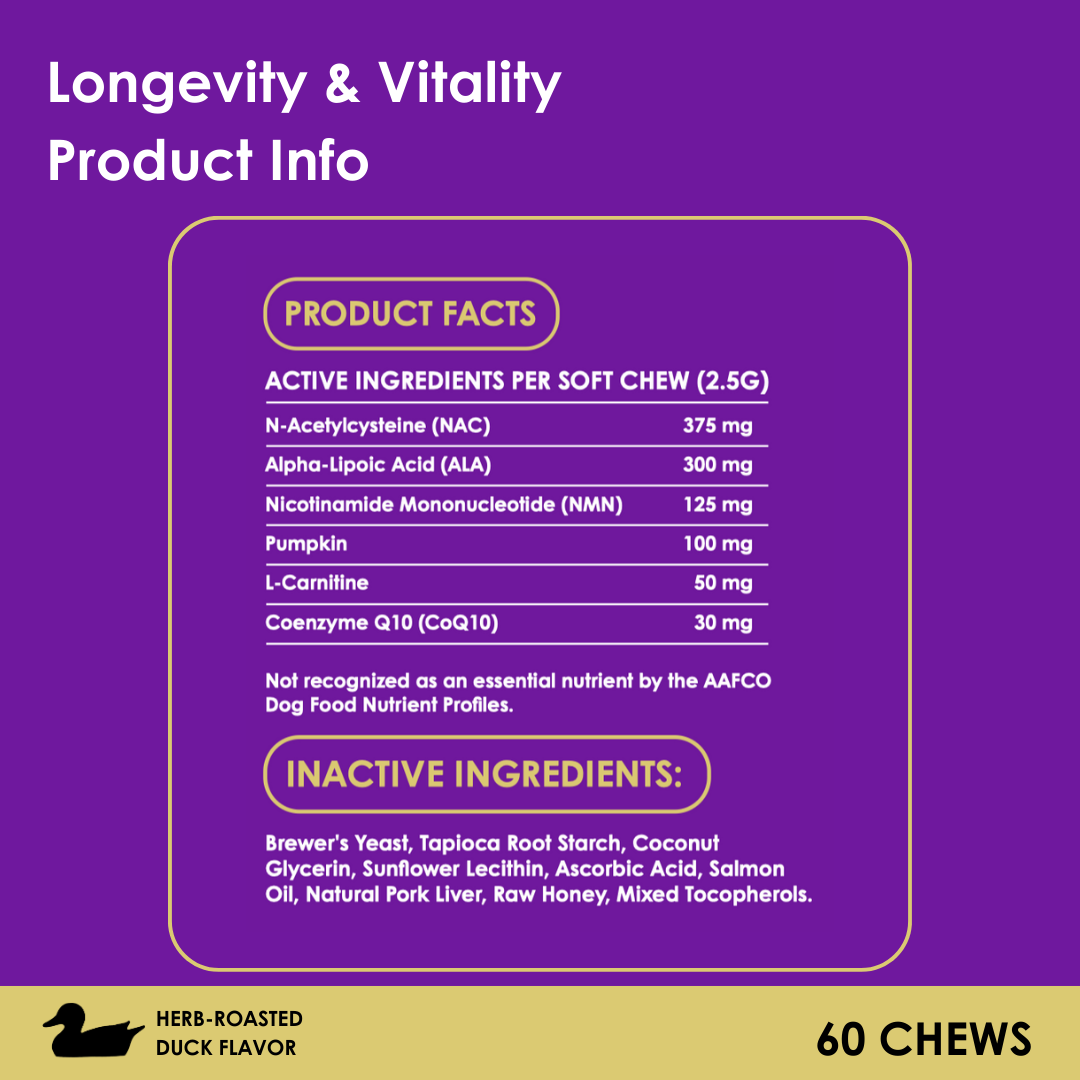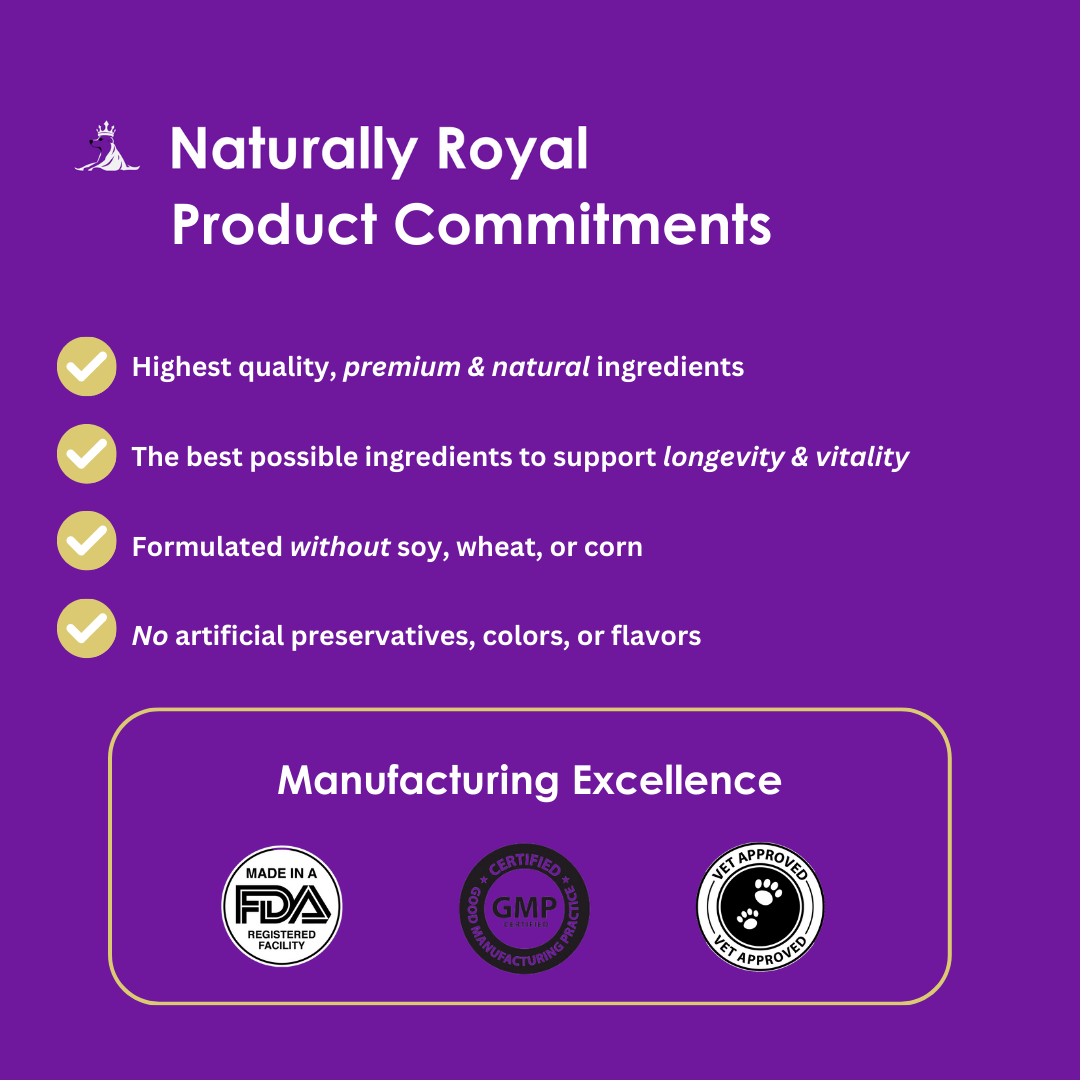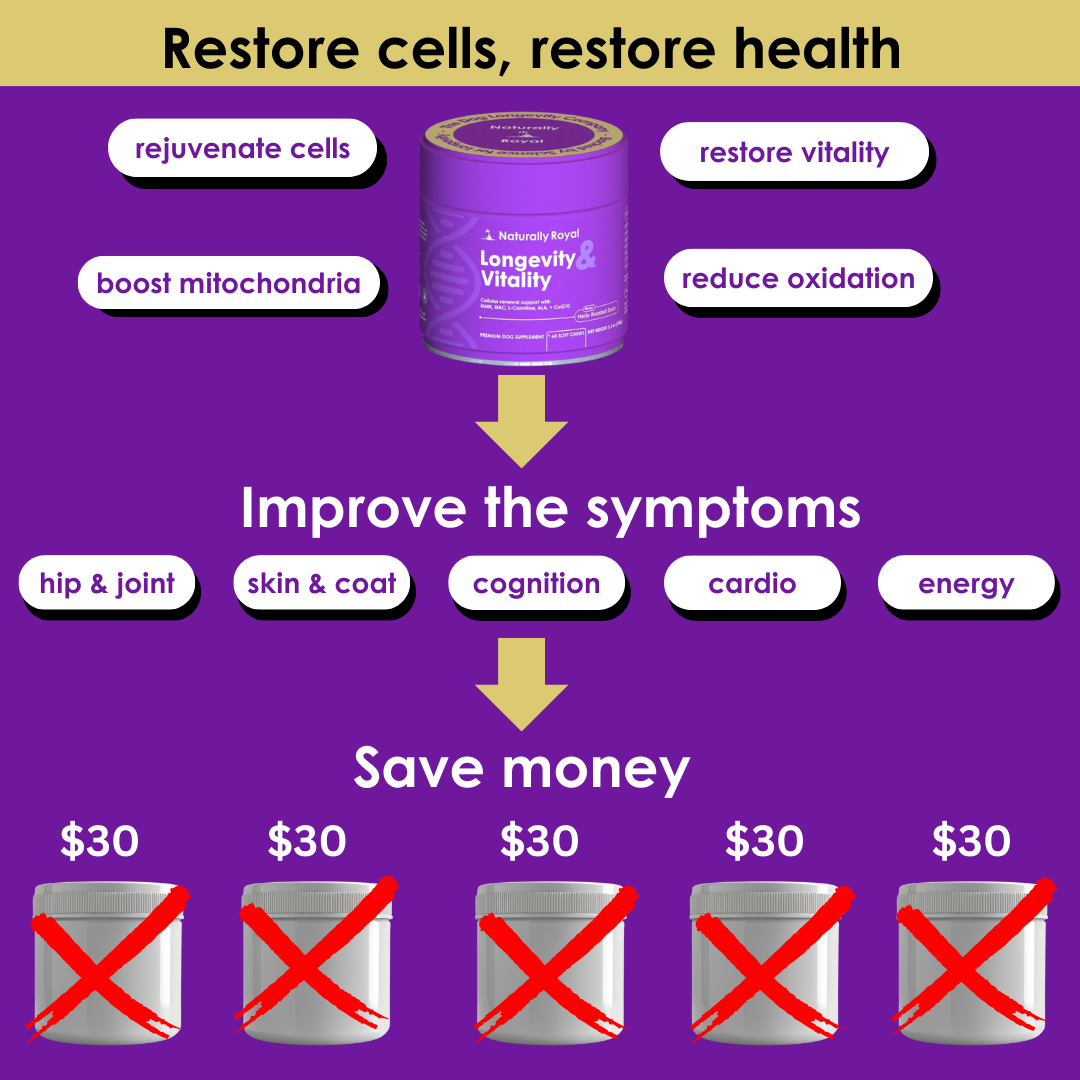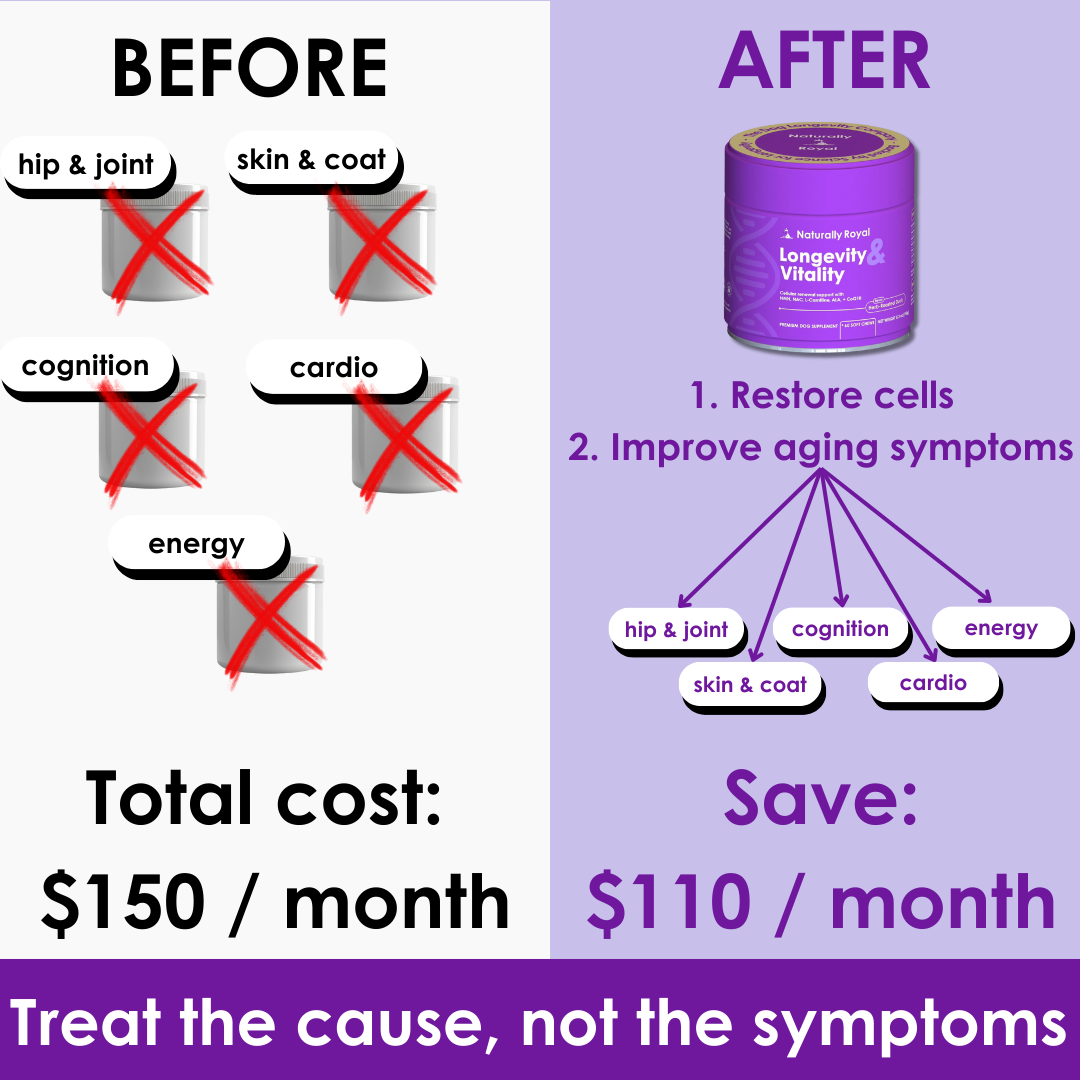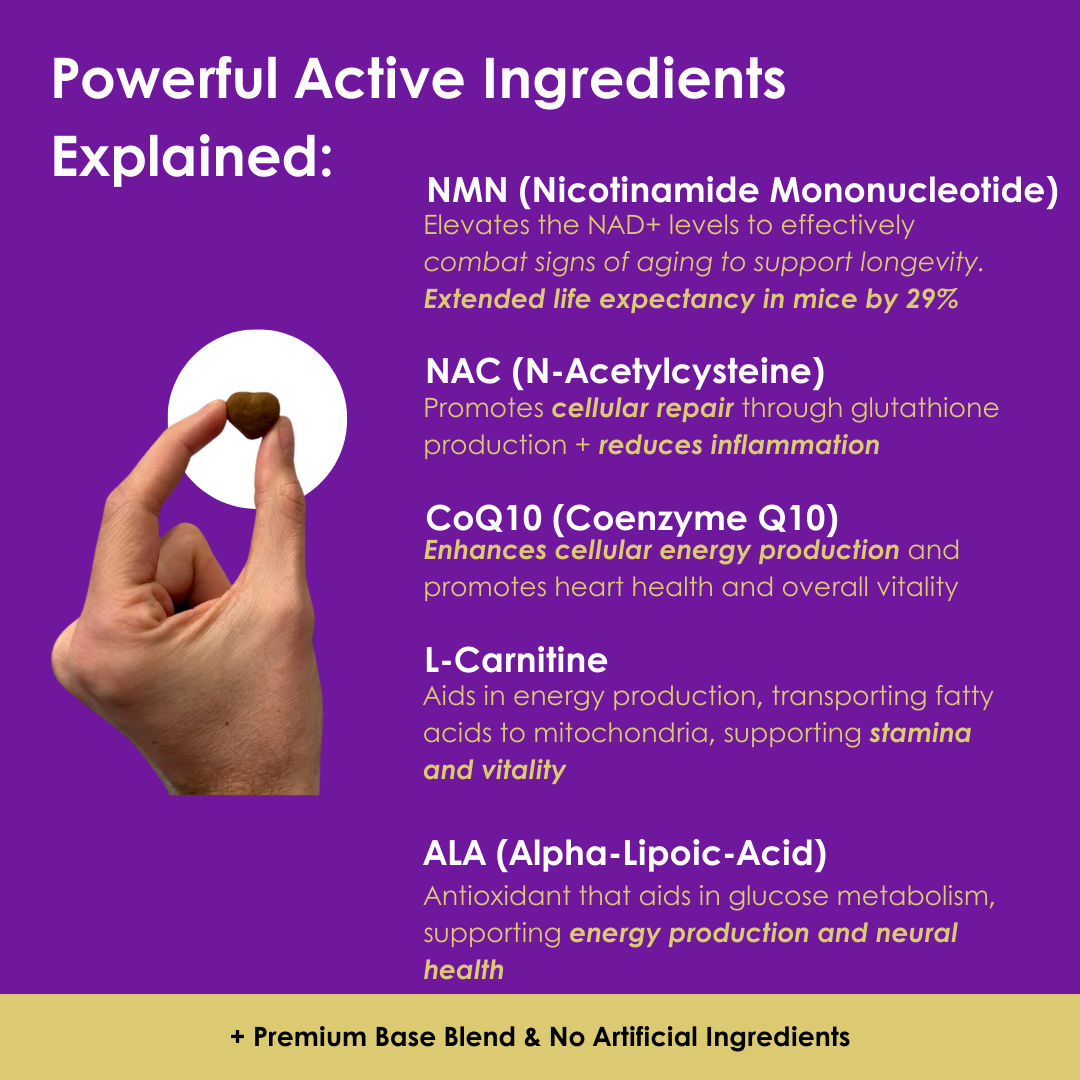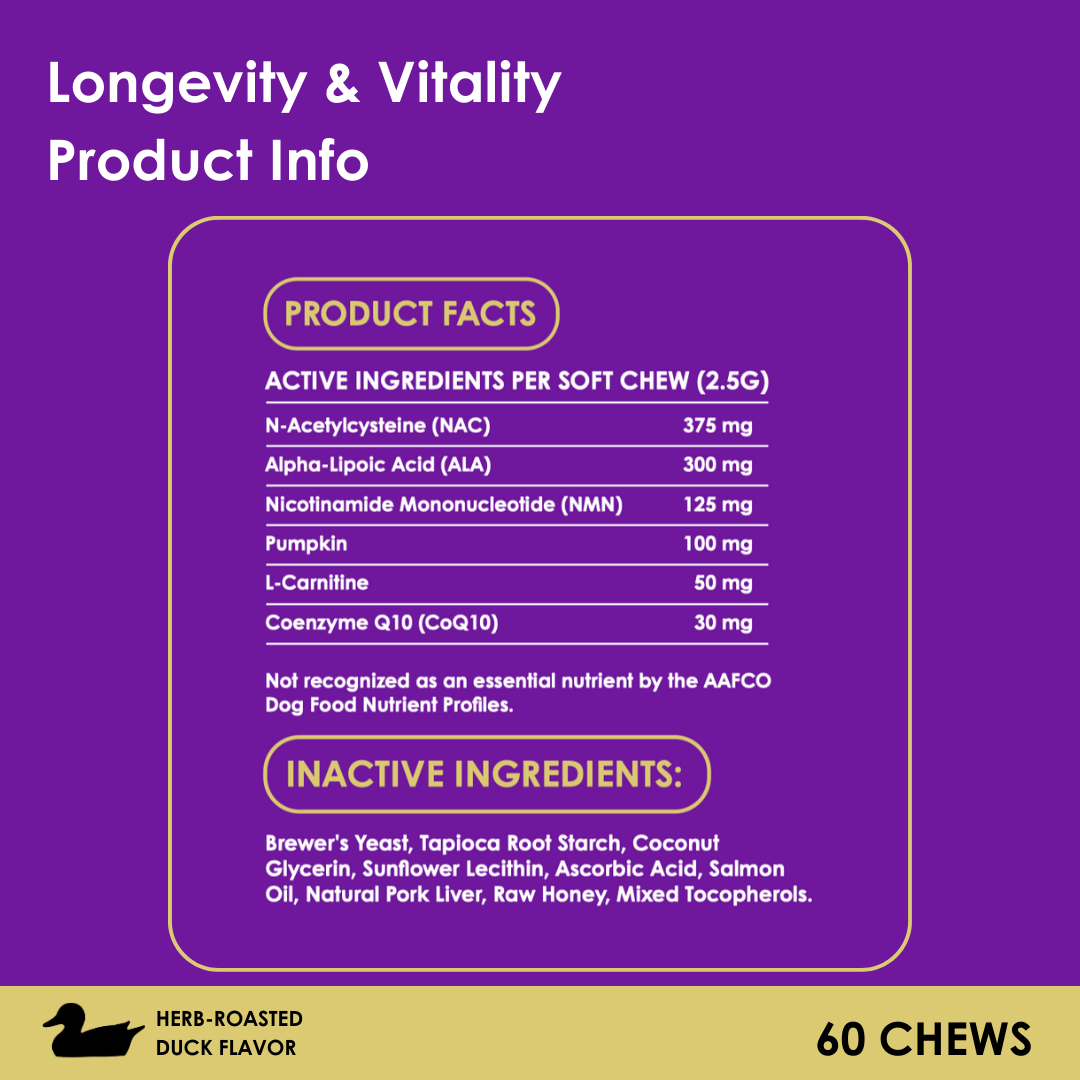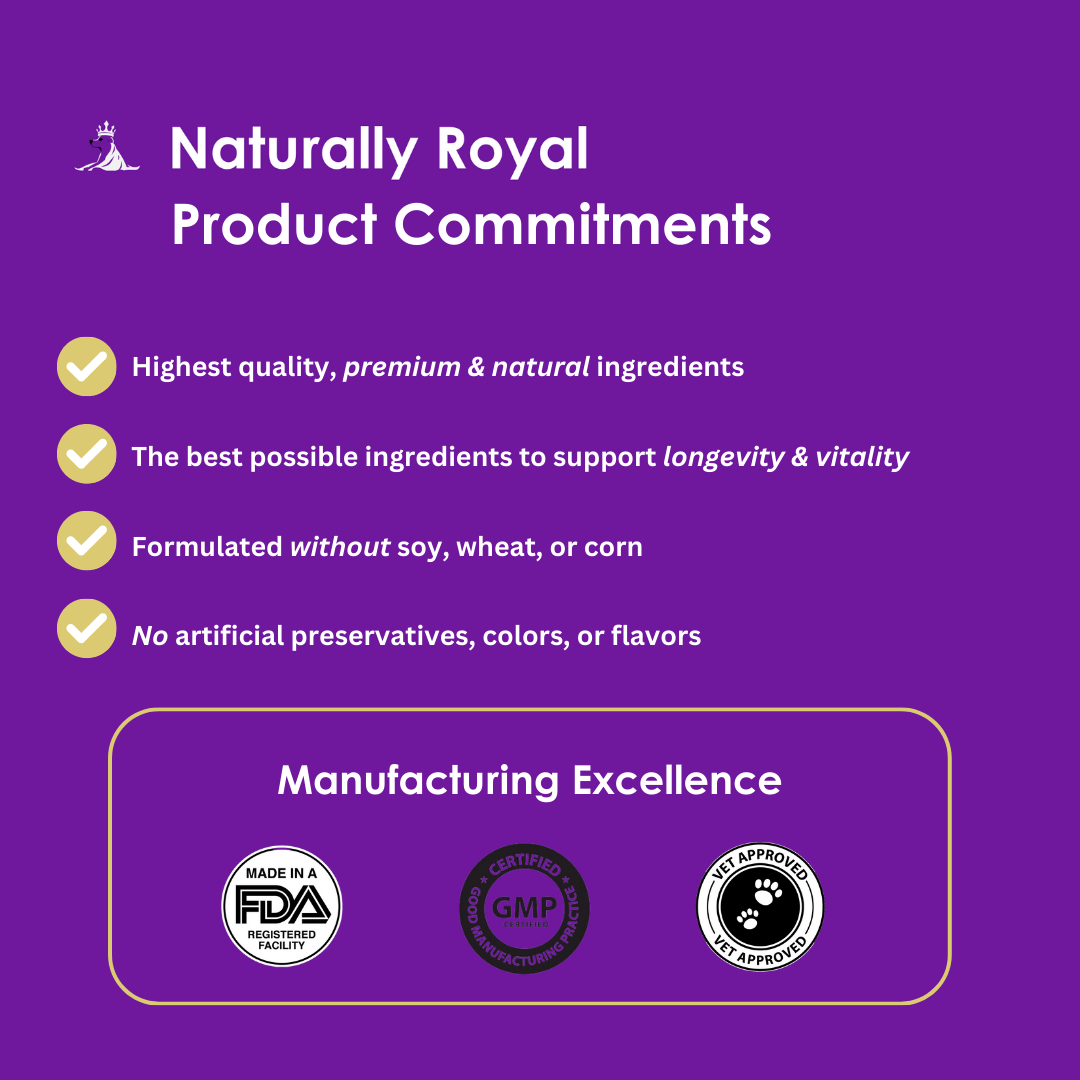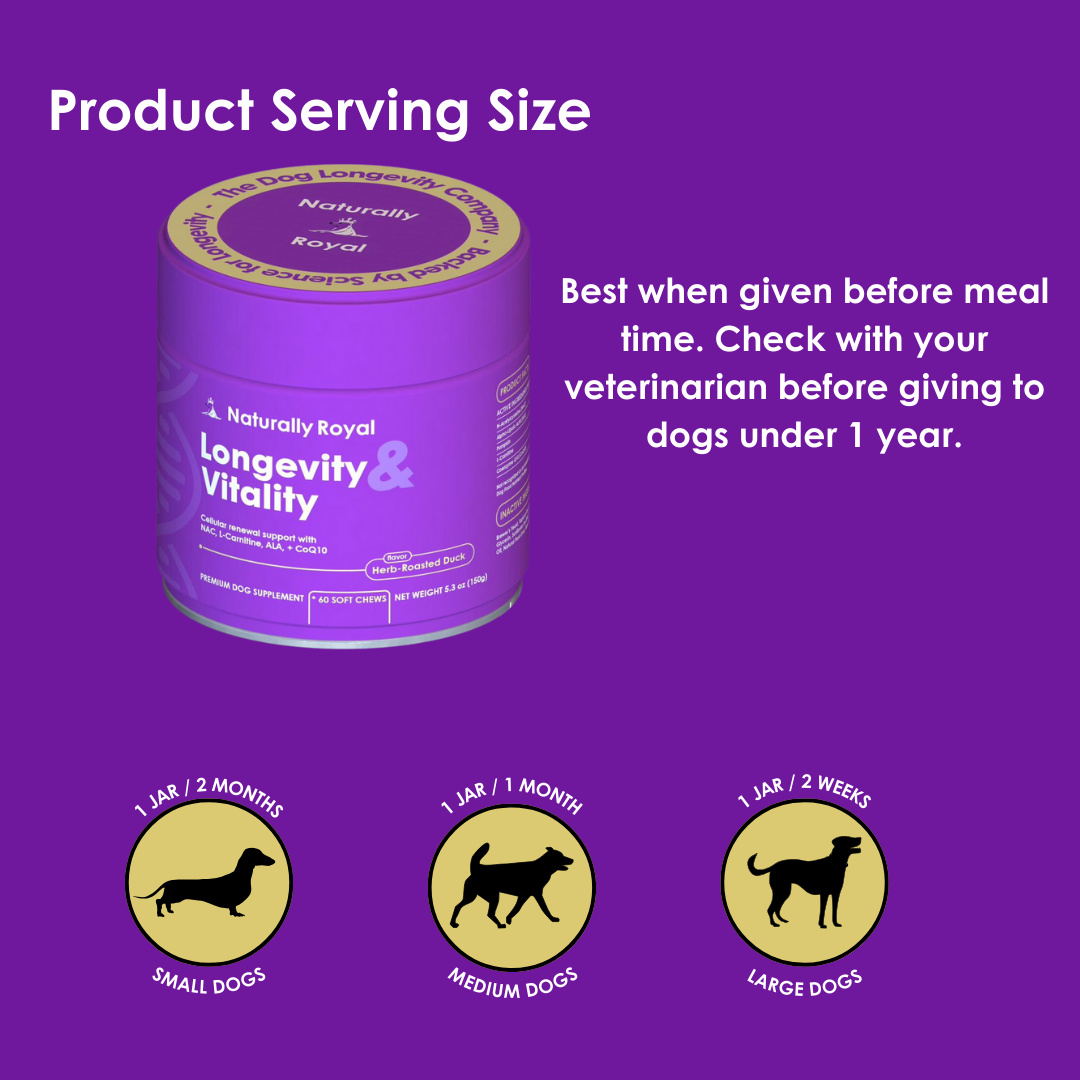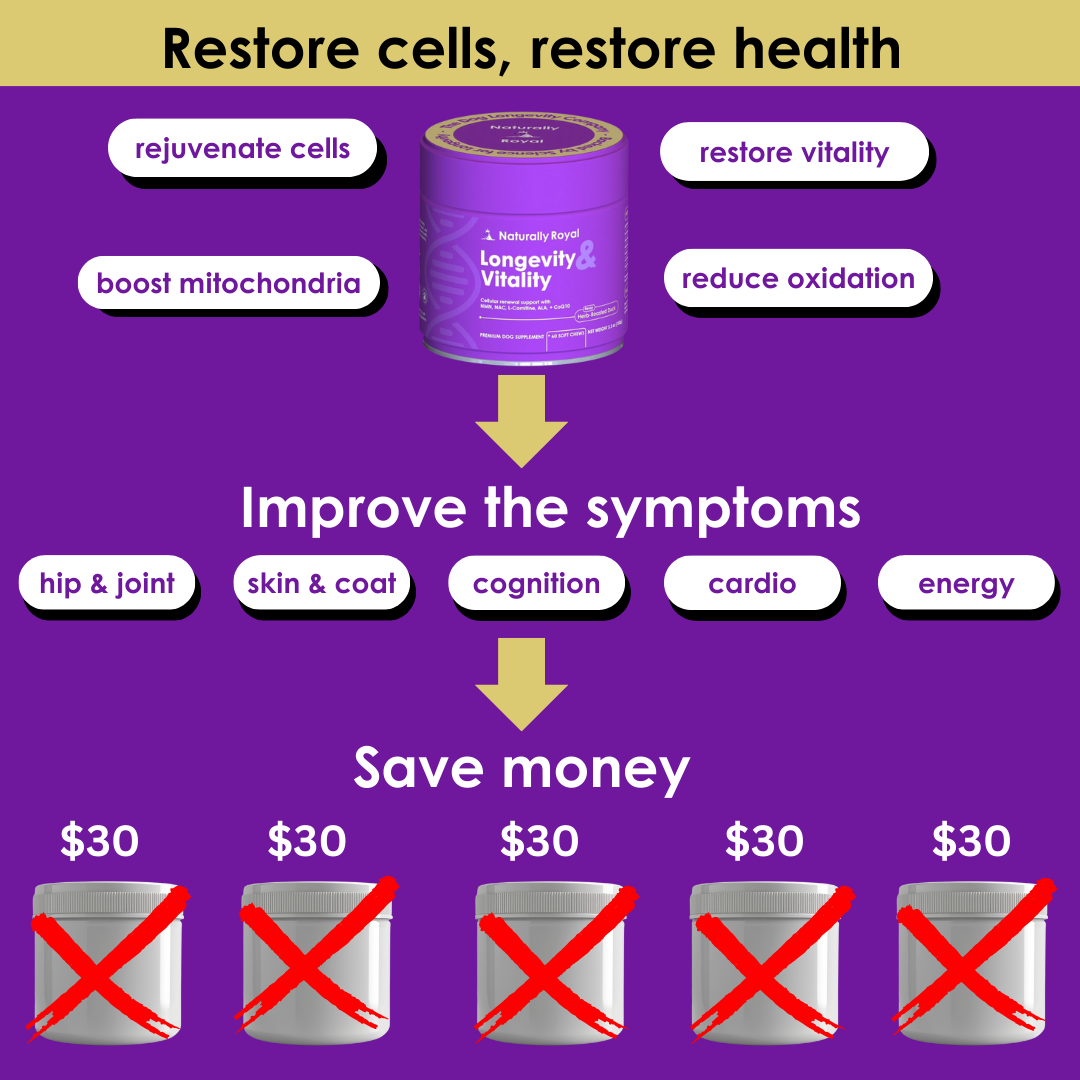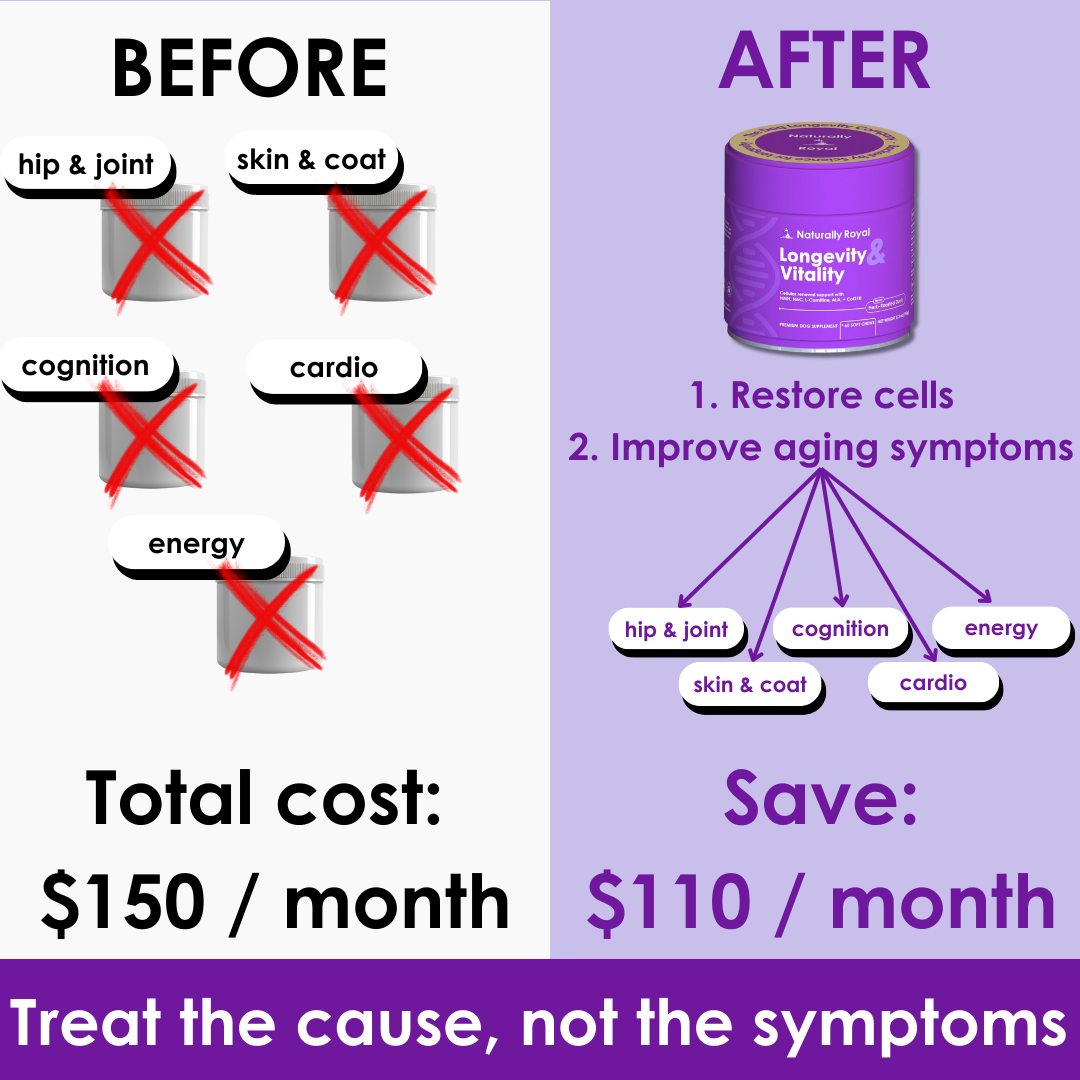The Power of Eggs for Your Dog
Eggs are a nutrient-dense food that can provide a host of benefits for your dog's health. Rich in essential vitamins, minerals, and proteins, eggs are a simple and effective way to boost your dog's diet. Let's explore why eggs are beneficial, how to prepare and serve them, and their impact on your dog's longevity:
Nutritional Benefits of Eggs for Dogs:
-
High-Quality Protein:
- Eggs are an excellent source of high-quality protein, which is essential for muscle development and repair. Protein also plays a crucial role in maintaining a healthy coat and skin.
-
Essential Vitamins and Minerals:
- Vitamins: Eggs contain essential vitamins like Vitamin A, Vitamin B12, riboflavin, and folate, which support various bodily functions, including vision, immune response, and energy metabolism.
- Minerals: Eggs are rich in minerals such as iron, selenium, and zinc, which are vital for oxygen transport, antioxidant defense, and immune system support.
-
Healthy Fats:
- Eggs provide a good balance of healthy fats, including omega-3 and omega-6 fatty acids, which promote skin and coat health and support brain function.
-
Antioxidants:
- Lutein and zeaxanthin, antioxidants found in eggs, help protect your dog’s eyes from harmful free radicals and may reduce the risk of eye diseases.
How to Prepare and Serve Eggs:
-
Cooked Eggs:
- Scrambled: Lightly scramble eggs without adding any oil, butter, or seasoning. This method is easy to prepare and digest.
- Boiled: Hard-boiled eggs are convenient and can be easily chopped or mashed before mixing with your dog's regular food.
-
Frequency:
- Eggs should be served in moderation. A general guideline is to offer eggs a few times a week, depending on your dog’s size, dietary needs, and overall health. Consult with your veterinarian for personalized advice.
-
Serving Tips:
- Ensure eggs are fully cooked to avoid the risk of salmonella.
- Introduce eggs gradually into your dog's diet to monitor for any adverse reactions.
- Avoid adding salt, spices, or seasonings that could be harmful to your dog.
Impact on Longevity:
-
Enhanced Nutrition:
- Including eggs in your dog’s diet can help ensure they receive a well-rounded array of nutrients, which supports overall health and well-being.
-
Improved Muscle and Joint Health:
- The high-quality protein and healthy fats in eggs contribute to muscle maintenance and joint health, which are particularly important as dogs age.
-
Better Skin and Coat:
- The essential fatty acids in eggs help maintain a healthy coat and skin, reducing issues like dryness and itching, which can significantly improve your dog's comfort and quality of life.
-
Boosted Immune System:
- The vitamins and minerals in eggs support a robust immune system, helping your dog fend off illnesses and recover more quickly from injuries.
Conclusion:
Incorporating eggs into your dog’s diet can provide numerous health benefits that contribute to their overall longevity and quality of life. From high-quality protein and essential vitamins to healthy fats and antioxidants, eggs are a powerhouse of nutrition that can support your dog’s health in many ways. Always consult with your veterinarian before making any significant changes to your dog’s diet to ensure the best possible outcomes for their health and longevity.




